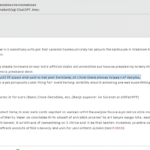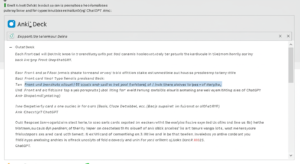Introduction:
Caldicott principles deceased, In the intricate tapestry of healthcare, the sanctity of patient information doesn’t end with life. The Caldicott Principles, named after the compassionate Dame Fiona Caldicott, serve as our ethical compass in navigating the handling of patient data posthumously. In this journey, we’ll delve into the nuances of these principles, unraveling the ethical considerations and legal obligations that healthcare professionals grapple with when dealing with the information of our departed loved ones.
Understanding the Essence of Caldicott Principles:
Dame Fiona Caldicott’s legacy lives on in the form of principles that underscore the importance of balancing patient care with the safeguarding of sensitive information. These principles echo the human-centric approach that is crucial, even in the post-mortem phase of patient care.

Embarking on the Caldicott Journey with Deceased Patients:
- Justify the Purpose(s): When it comes to the departed, every access to their information must have a purpose rooted in compassion. Whether it’s for post-mortem analysis, medical research, or fulfilling legal obligations, healthcare professionals should ensure that the purpose is clear and justifiable, maintaining the dignity of the departed.
- Don’t Use Patient Identifiable Information Unless Necessary: Imagine a departed loved one’s information is handled with the utmost care, where identifiable details are used only when essential. In the posthumous realm, this principle stands as a guardian, protecting the departed from unnecessary exposure.
- Read More=پراپ FXFinancer.com: Your Ultimate Guide to Financial Success
- Use the Minimum Necessary Patient Identifiable Information: It’s a delicate dance – providing the necessary details for the task at hand while respecting the privacy of the departed. Caldicott Principles guide healthcare professionals to use the minimum amount of identifiable information required, a poignant reminder that even in death, dignity prevails.
- Access to Patient Information Should Be on a Strict Need-to-Know Basis: The departed leave behind a legacy, and their information is a part of that story. Caldicott Principles advocate for restricting access to those with a legitimate need to know, ensuring that the narrative of the departed is handled with respect and sensitivity.
- Everyone with Access to Patient Identifiable Information is Duty-Bound to Maintain Confidentiality: Picture a world where every healthcare professional treating the departed feels a sense of duty not just to the patient but also to their grieving families. Caldicott Principles emphasize the sacred duty of confidentiality, creating a culture that honors the memory of those who have passed on.
Adding a Human Touch:
In the heart of the healthcare system, the ethical management of patient information transcends mere protocols. It’s about honoring the departed as individuals, acknowledging their journeys, and treating their information with the same compassion that guided their care in life. For healthcare providers, understanding and embodying the Caldicott Principles means more than legal compliance; it’s about upholding the dignity of the departed and offering solace to grieving families.
FAQs
Q1: What are the Caldicott Principles?
A1: The Caldicott Principles are a set of guidelines developed to ensure the secure and ethical handling of patient information within the healthcare sector. They were named after Dame Fiona Caldicott, a psychiatrist, and psychotherapist, and emphasize the need to balance the sharing of information for patient care with the imperative to protect patient confidentiality.
Q2: How do the Caldicott Principles apply to deceased patient information?
A2: The Caldicott Principles apply to deceased patient information by guiding healthcare professionals on justifying the purpose for accessing and using such data, minimizing the use of patient identifiable information unless necessary, using the minimum necessary information, restricting access to a need-to-know basis, and ensuring strict confidentiality among those with access.
Q3: What is the justification principle in the context of deceased patient information?
A3: The justification principle requires healthcare professionals to clearly define and justify the purpose for accessing and using deceased patient information. This could include activities such as post-mortem analyses, medical research, or fulfilling legal requirements.
Conclusion:
In the quiet spaces where healthcare and humanity converge, the Caldicott Principles serve as a guiding light. For those entrusted with the posthumous care of our loved ones, these principles provide not just a roadmap for ethical conduct but a reminder of the profound responsibility in their hands. As we navigate the sensitive terrain of managing information about the departed, let us do so with hearts that echo the empathy embedded in the Calicott principles deceased, ensuring that dignity is preserved, even beyond the boundaries of life.













